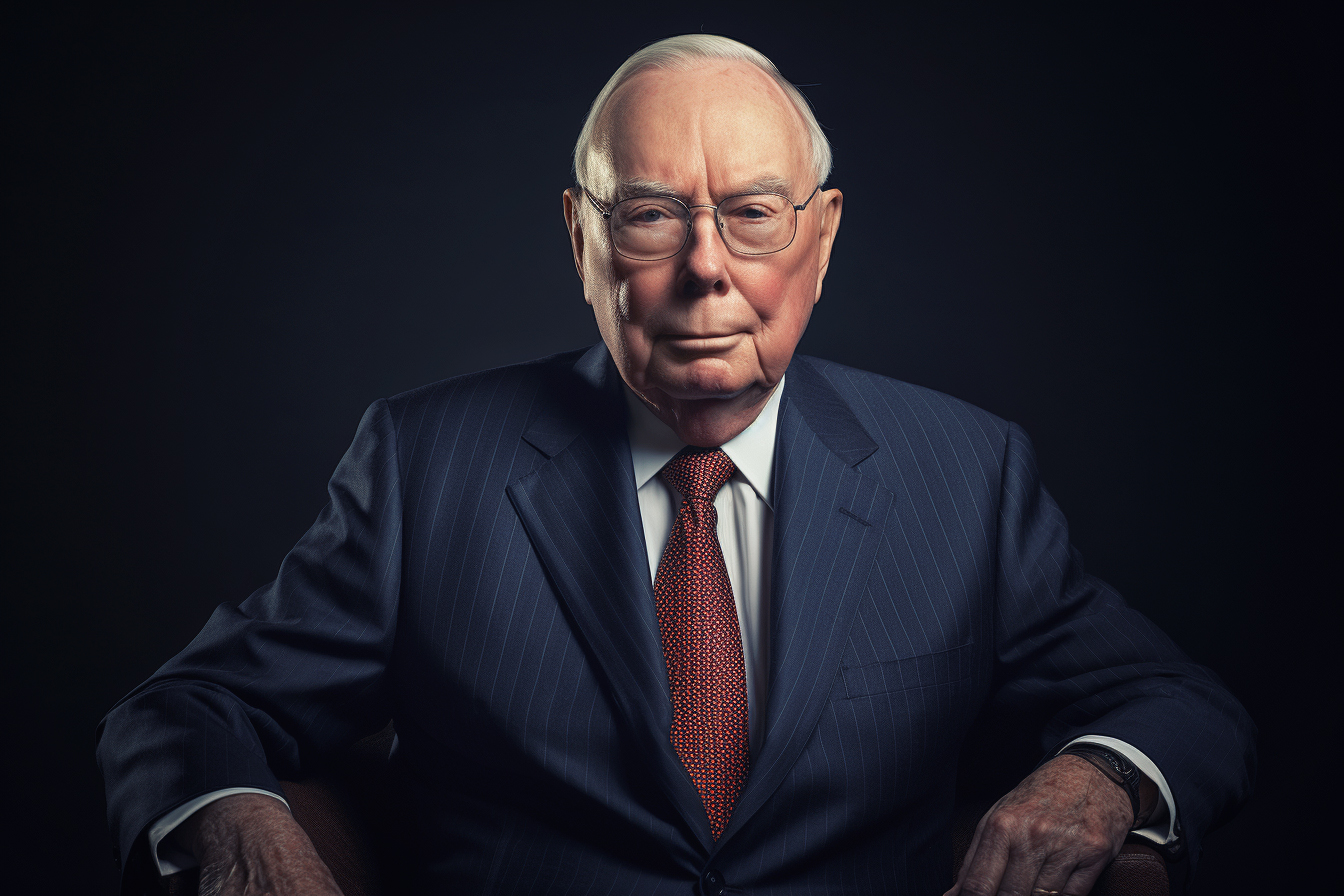“In the fields of observation, chance favors only the prepared mind.” – Louis Pasteur.
Certain guiding principles have stood the test of time in the complex realm of investing and decision-making, shedding light on the path to success. Among the brilliant minds that have shared their wisdom with us, Charlie Munger, renowned investor, and sage of business strategy, has imparted some truly invaluable insights. His ideas serve as lighthouses in the stormy seas of investment, steering investors toward opportunity and away from potential pitfalls.
This article delves into Munger’s philosophy on readiness, the role of learning, understanding opportunity costs, and the artful balance of simplicity and complexity in strategic thinking. Let’s journey into the mind of one of the most successful investors of our time in his own words and decipher how these concepts can mold us into more insightful decision-makers.
Charlie Munger on Opportunity
Charlie Munger explained, “You know, the game in our kind of life is being able to recognize a good idea when you rarely get it or when it rarely is presented to you. And I think that’s something you have to prepare for over a long period. What is the old saying? That opportunity comes to the prepared mind. And I don’t think you can teach people in two minutes how to have a prepared mind. But that’s the game.”
Warren Buffett pointed out, “Things we learned 40 years ago, though, will help and recognize the next big idea.”
Munger continued, “And on opportunity cost, going back to that. The current freshman economics text, which is sweeping the country, has written in practically the first page, and it says, ‘All intelligent people should think primarily in terms of opportunity cost. That’s obviously correct, but it’s very hard to teach business based on opportunity cost. It’s much easier to teach the Capital Assets Pricing Model, or you can just punch in numbers and out come numbers, and therefore people teach what is easy to teach instead of what is correct to teach. It reminds me of Einstein’s famous saying. He says, ‘Everything should be made as simple as possible, but no more simple.’ Write that down.”
Keep it simple
Charlie Munger is well-known for applying multidisciplinary thinking and mental models to investment decisions and problem-solving. One of these mental models is the idea encapsulated by Einstein’s quote, “Make everything as simple as possible, but not simpler.”
In embracing this quote, Munger advocates for a simplified approach to problem-solving while recognizing that oversimplification can lead to inaccurate assumptions and flawed decisions. He understands that simplicity in thought allows us to cut through the noise and focus on what matters and that clear, uncomplicated thinking facilitates understanding. At the same time, he cautions that oversimplification can lead to errors in understanding and judgment.
When it comes to seeing opportunities and understanding opportunity costs, Munger uses this idea to strip away extraneous detail and focus on the essential elements of a potential investment. He looks at a business’s core value and potential rather than getting bogged down in complex financial models or forecasts. He prefers to use simple, logical analysis that allows for a clear understanding of the potential risks and benefits.
In economic terms, opportunity cost refers to the potential benefits an individual or business misses out on when choosing one alternative over another. By keeping his approach to decision-making simple but not overly simplistic, Munger can better evaluate the actual opportunity cost of his decisions. He avoids the pitfalls of complex or speculative strategies that may obscure actual opportunity costs.
In this sense, Einstein’s quote serves as a guiding principle for Munger’s approach to investing and decision-making. The quote reinforces the value of simplicity in understanding while cautioning against oversimplification that could distort understanding and lead to poor decisions. This mental model is an excellent filter to cut through noise and complexity and focus on opportunities for their fundamental value and risk-to-reward ratio. Clear, concise, simple thinking helps to identify opportunities in real time and not miss them.
Key Takeaways
- Mental readiness is paramount in seizing potential advantages. According to Munger, adequate comprehension and application of a beneficial idea require substantial preparation and mental conditioning.
- Long-term learning plays an essential role in identifying and capitalizing on significant concepts. Knowledge and wisdom accumulated over an extended period can pave the way to recognize and exploit the next game-changing idea.
- Opportunity cost should be a primary consideration in strategic decision-making. An acute understanding of this economic concept is fundamental to optimize choices and navigating business terrain effectively.
- The Capital Assets Pricing Model may seem more straightforward due to its numerical nature, but its overuse can lead to overlooking the relevance of opportunity cost.
- Balancing simplicity with complexity in thinking is crucial. Following Einstein’s principle, Munger emphasizes the importance of maintaining simplicity in problem-solving and decision-making processes without diluting the essence of the matter.
Conclusion
In decision-making, striking a balance between simplicity and complexity is a high-wire act. Charlie Munger provides the perfect formula for success, combining lessons from life-long learning, understanding opportunity costs, and taking the Einsteinian approach of maintaining simplicity without compromising substance. This powerful synthesis allows for a nimble mind, ever prepared to grasp life’s next significant idea or opportunity. By instilling these principles, we can better equip ourselves to navigate the ever-evolving landscape of decision-making, fostering an environment that cultivates success in business and life.
